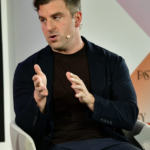“We’re going to equalize,” Trump said during a Monday morning press conference. “We’re all going to pay the same. We’re going to pay what Europe pays.”
It’s unclear what — if any — impact the Republican president’s executive order will have on millions of Americans who have private health insurance. The federal government has the most power to shape the price it pays for drugs covered by Medicare and Medicaid.
The nation’s pharmaceutical lobby, which represents the top U.S. drugmakers, immediately pushed back against Trump’s order, calling it a “bad deal” for American patients. Drugmakers have long argued that any threats to their profits could impact the research they do to develop new drugs.
“Importing foreign prices from socialist countries would be a bad deal for American patients and workers,” Stephen J. Ubl, the president and CEO of PhRMA, said in a statement. “It would mean less treatments and cures and would jeopardize the hundreds of billions our member companies are planning to invest in America.”
Trump repeatedly defended pharmaceutical companies, instead blaming other countries for the high price Americans pay for drugs, during a wide-ranging speech at the White House on Monday. The president was flanked by Kennedy, Centers for Medicare and Medicaid Services administrator Dr. Mehmet Oz, Food and Drug Administration commissioner Dr. Marty Makary and National Institutes of Health director Jay Bhattacharya.
He did, however, threaten the companies with federal investigations into their practices and opening up the U.S. drug market to bring in more imported medications from other countries.
“The pharmaceutical companies make most of their profits from America,” Trump said. “That’s not a good thing.”
Trump played up the announcement over the weekend, boasting in one post that his plan could save “TRILLIONS OF DOLLARS.”
But on Monday, the White House offered no specifics for how much money the administration anticipates it could save.
The health department’s top leaders will be meeting with drug company executives over the next 30 days to offer new prices on drugs that are based off what other countries pay, Oz said on Monday.
Americans are unlikely to see relief on rising drug costs quickly because of the order, said Rachel Sachs, a health law expert at Washington University.
“It really does seem the plan is to ask manufacturers to voluntarily lower their prices to some point, which is not known,” Sachs said. “If they do not lower their prices to the desired point, HHS shall take other actions with a very long timeline, some of which could potentially, years in the future, lower drug prices.”
The U.S. routinely outspends other nations on drug prices, compared with other large and wealthy countries, a problem that has long drawn the ire of both major political parties, but a lasting fix has never cleared Congress.
Trump came into his first term accusing pharmaceutical companies of “getting away with murder” and complaining that other countries whose governments set drug prices were taking advantage of Americans.
Ahead of the announcement, Trump puffed up his rhetoric toward the industry again on social media, writing that the “Pharmaceutical/Drug Companies would say, for years, that it was Research and Development Costs, and that all of these costs were, and would be, for no reason whatsoever, borne by the ‘suckers’ of America, ALONE.”
Referring to drug companies’ powerful lobbying efforts, he said that campaign contributions “can do wonders, but not with me, and not with the Republican Party.”
“We are going to do the right thing,” he wrote.









